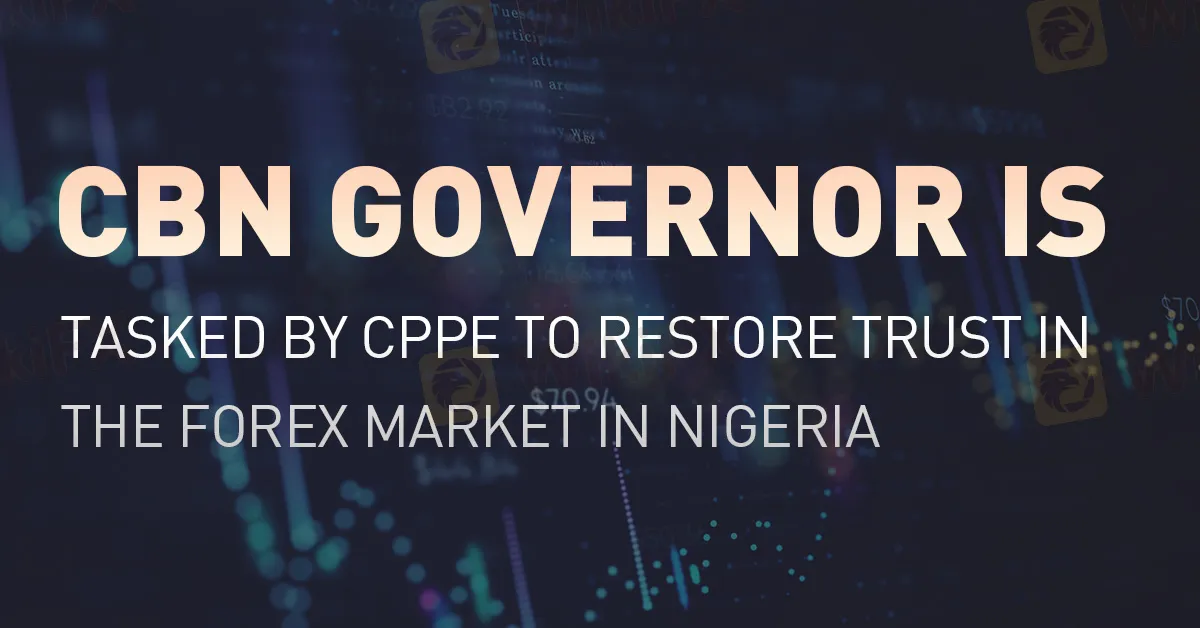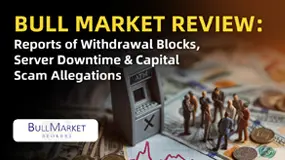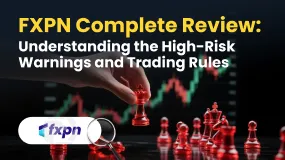Abstract:Restoring confidence in Nigeria's forex market is among the most important issues that the new governor of the Central Bank of Nigeria (CBN), Dr. Olayemi Cardoso, needs to focus on, according to the Centre for the Promotion of Private Enterprise (CPPE).

Restoring confidence in Nigeria's forex market is among the most important issues that the new governor of the Central Bank of Nigeria (CBN), Dr. Olayemi Cardoso, needs to focus on, according to the Centre for the Promotion of Private Enterprise (CPPE).
According to a statement made over the weekend and signed by Dr. Musa Yusuf, Director/CEO of CPPE, the Nigerian economy is suffering from the severe negative effects of the depreciating currency, rising energy prices, raging inflationary pressures, a massive backlog of unpaid foreign exchange obligations, and unpaid debt service obligations.
The Center for the Promotion of Private Enterprise (CPPE) praises Dr. Olayemi Cardoso's selection as the Governor of the Central Bank of Nigeria, according to the CPPE. He possesses the academic, intellectual, and professional qualifications to lead the top bank. Additionally, he possesses the background, temperament, and character that the job requires.
The CPPE offers the following as a proposal for the new CBN team's agenda:
Perhaps the most important duty before the new CBN Governor, Dr. Cardoso, assumes the leadership of the CBN at a very critical juncture in our economic history is to restore confidence in the country's foreign market.
The foreign exchange market is experiencing a significant confidence crisis, which is driving an unprecedented wave of speculative activity against the naira. The economy is struggling to deal with the severe negative effects of the weakening currency, rising oil prices, raging inflationary pressures, a massive backlog of unpaid foreign exchange commitments, and unpaid debt service obligations.
Unfortunately, these results are coming to fruition at a time when the nation's foreign reserves are heavily strained. Since the results don't match up with expectations, there seems to be a slowdown in the pace of economic reforms.Since the societal consequences of the reforms were far larger than expected, the civil society reacted negatively. In light of the social effects of the market-oriented reforms, the orthodoxy of market forces in economic management is being questioned.
With the resurgence of fuel subsidies and exchange rate differential, political economy is gradually making a comeback. The new economic team must promptly resolve this apparent economic management conundrum. And in this, the CBN has a crucial role to play.As far as the reserves will allow, the CBN must ensure strategic and transparent intervention in the FX market to reduce volatility.
In addition to the I and E windows, it has become necessary to create an autonomous window in the banking system where the currency can trade freely without any restrictions.
This is required to stop remittances from being diverted to illegal markets or other jurisdictions. At this point, we cannot afford to remain in denial. To regain the confidence of both domestic and foreign investors, clearing the backlog of foreign exchange commitments should be given first priority.Increasing the deposit money banks' fundamental function in an economy, which is financial intermediation, is another issue that needs to be addressed by the incoming CBN administration.
The mobilization of financial resources from the economy's surplus to its deficit sector is part of this obligation. Despite difficulties with access and credit costs, the private sector's financial situation is nevertheless exceedingly precarious.
In comparison to the sub-Saharan average of 28 percent and the global average of 145 percent, Nigeria's banking system only provided the private sector with 20.6 percent of the country's GDP as of 2022.
In addition, the amount of credit available to small enterprises, which are estimated to make up 50% of the GDP, is just approximately 1%. The consequence is that the banking sector is still largely cut off from the investment community, particularly from the economy's small enterprises.
Over N600 billion has been cited as the estimated finance deficit for small businesses. There has to be a fix for this oddity. All of these point to the necessity of strengthening the interdependence and complementarity between the banking sector and other economic actors, particularly MSMEs.
The ratio of financial assets to GDP, the ratio of deposit liabilities to GDP, and the ratio of the money supply to GDP are the three main indicators of the depth of the financial system. In comparison to other rising economies, Nigeria's grade is still quite low due to these statistics.
Deepening the financial system is therefore essential for stability. The ratio of banks' non-interest income to total income needs to be decreased. Given the severe economic challenges facing investors, the ratio, which was 42.5 percent two years ago, would have increased by this point.
The ratio is less than 30 percent in the majority of developing economies. The collapse of financial intermediation in the economy is reflected in this income structure. Therefore, this needs to be resolved.
Financial intermediation is the primary duty of the banking sector. The expansion of the economy suffers when non-banking activities take over deposit money banks' roles as financial intermediaries.
The effectiveness of the financial system must also be taken into consideration by the incoming CBN administration. The Nigerian banking sector has an excessive disparity between deposit and lending rates. It is a sign that the banking sector has significant efficiency problems.
The ratio is less than 30 percent in the majority of developing economies. The collapse of financial intermediation in the economy is reflected in this income structure. Therefore, this needs to be resolved.
Financial intermediation is the primary duty of the banking sector. The expansion of the economy suffers when non-banking activities take over deposit money banks' roles as financial intermediaries.
The effectiveness of the financial system must also be taken into consideration by the incoming CBN administration. The Nigerian banking sector has an excessive disparity between deposit and lending rates. It is a sign that the banking sector has significant efficiency problems.










